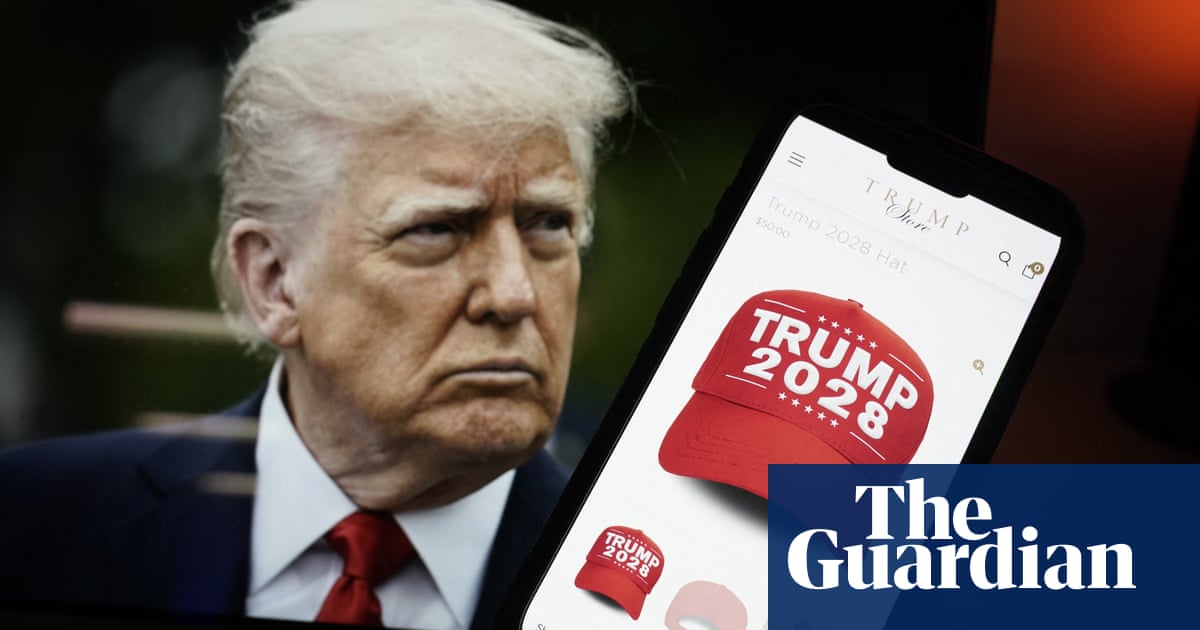The article presents an intriguing situation regarding Donald Trump and his online merchandise strategy, particularly with the release of "Trump 2028" branded items. By exploring this topic, it becomes evident that the story encompasses not just the products but also the political implications and public sentiment surrounding Trump’s potential candidacy.
Commercial Strategy and Public Sentiment
The publication of "Trump 2028" hats and t-shirts in Trump's online store signals a strategic move to keep his brand alive and relevant in the public eye, despite his controversial standing. This aligns with Trump's known penchant for personal branding and merchandising as a form of political engagement. However, the paradox lies in the fact that he is constitutionally barred from running for a third term, raising questions about the seriousness of this campaign message. The merchandise aims to elicit a sense of loyalty among supporters while potentially serving as a fundraising mechanism.
Perception Management
The article subtly reflects concerns regarding Trump’s declining popularity, as indicated by the opinion polls that critique his handling of pressing issues such as the economy and tariffs. By emphasizing the merchandise release, there’s an attempt to shift the narrative from his political shortcomings to a rallying point for his supporters. This can create a perception of continuity and hope among his base, countering the negative sentiments reflected in the polls.
Constitutional Implications
The reference to the 22nd Amendment serves to underscore the legal barrier Trump faces regarding a third term. The article implies that any attempts to amend the Constitution would unleash significant political turmoil. By highlighting this, it invites readers to consider the broader implications of Trump's ambitions, potentially engendering a sense of skepticism about the feasibility of such a move.
Potential Manipulation and Public Reaction
While the article does not overtly manipulate facts, it carefully crafts a narrative that could be interpreted as a means of rallying support. The language used in the product descriptions, such as "Make a statement," is designed to invoke a sense of action and belonging among potential buyers. This approach capitalizes on the emotions of Trump's base, fostering a community feeling around the idea of a future campaign.
Comparison with Other News
When comparing this article to other news stories about Trump, there’s a consistent theme of branding and public relations strategies aimed at sustaining his influence, particularly as his political viability is questioned. This aligns with broader narratives in media that often focus on Trump's personality over policy, suggesting a deliberate choice in how news about him is framed.
Impact on Society and Economy
The implications of this merchandise strategy could reverberate through political discussions and economic transactions, particularly among Trump's supporters. As the 2028 election approaches, the merchandise could bolster his base, potentially affecting voter turnout and contributions to his campaign. This dynamic might also influence stock markets, particularly for companies associated with manufacturing or selling political merchandise.
Target Audience
The article is likely to resonate more with Trump’s core supporters, who are inclined to buy into his brand. By promoting "Trump 2028" merchandise, the messaging is strategically tailored to appeal to individuals who feel a sense of loyalty or nostalgia for his presidency.
Global Context
In terms of global power dynamics, while the article primarily focuses on domestic politics, Trump's potential candidacy could have implications for U.S. foreign policy and international relations. The story reflects an ongoing tension in American politics that could influence global perceptions of U.S. stability and leadership.
The language of the article, while factual, emphasizes certain aspects of Trump's narrative that may cater to his support base. This could be seen as a subtle manipulation to keep the conversation focused on his brand rather than his political controversies.
Ultimately, while the news article contains factual elements, its framing and focus suggest a strategic intention to maintain Trump's relevance amidst declining approval ratings and constitutional challenges.
